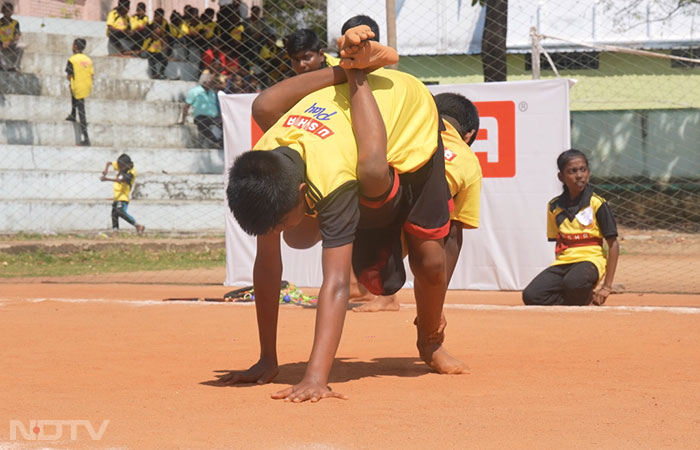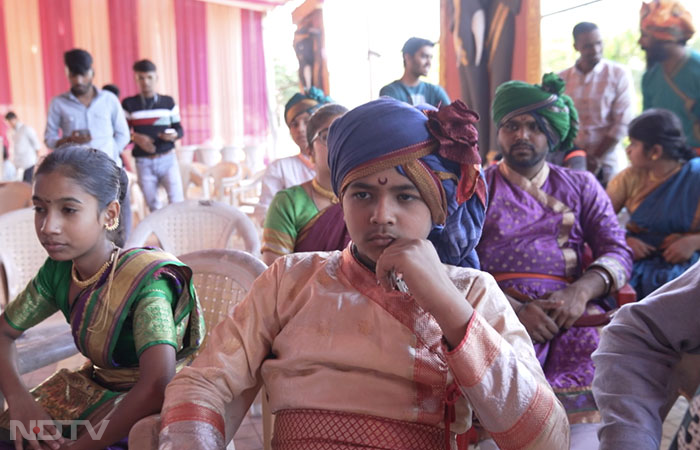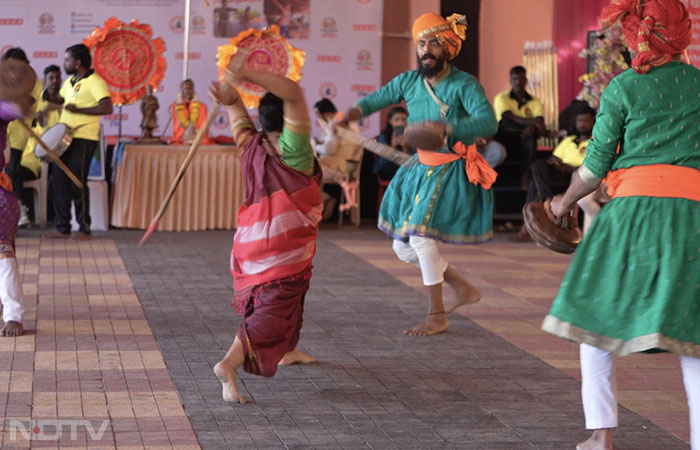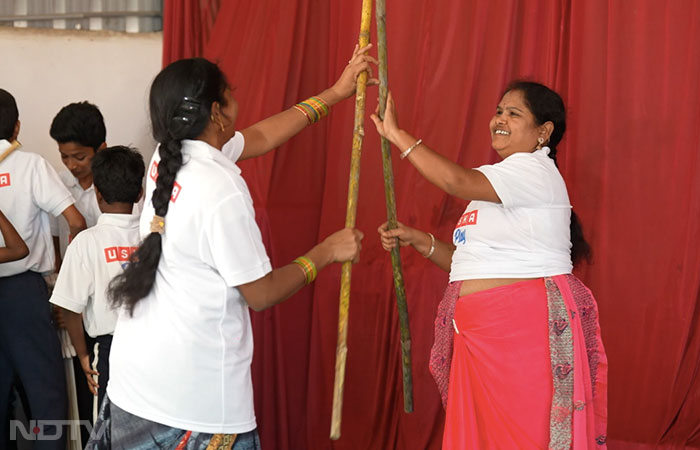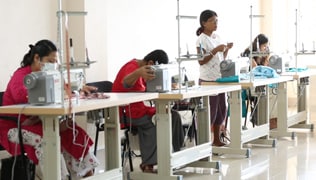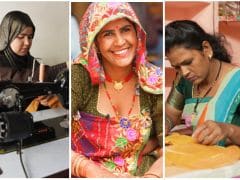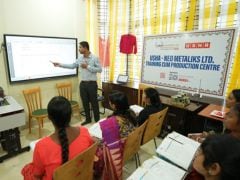Usha Silai Schools Reviving India's Traditional Sports For A Healthy Community Legacy
India's traditional sports like Adimurai, Mardani Khel, and Karra Samu and Kathi Samu, are now making a comeback, thanks to Usha. Here is how Usha is promoting a healthy and active lifestyle while strengthening the community's legacy tied to these sports, with the active participation of Usha Silai School women.
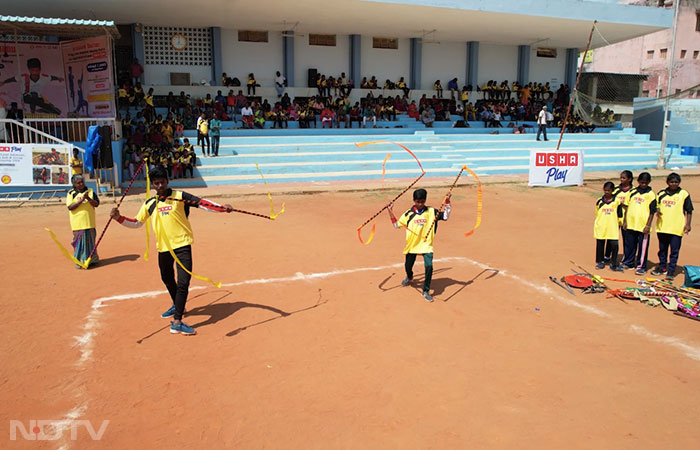
Traditional sports play a crucial role in showcasing and preserving the essence of Tamil Nadu's cultural heritage. In Kanyakumari, "Adimurai" - a time-tested martial art form steeped in local history, is experiencing a resurgence with the support of Usha and the Lemuria Varmakalari Adimurai World Organization (VAWO).
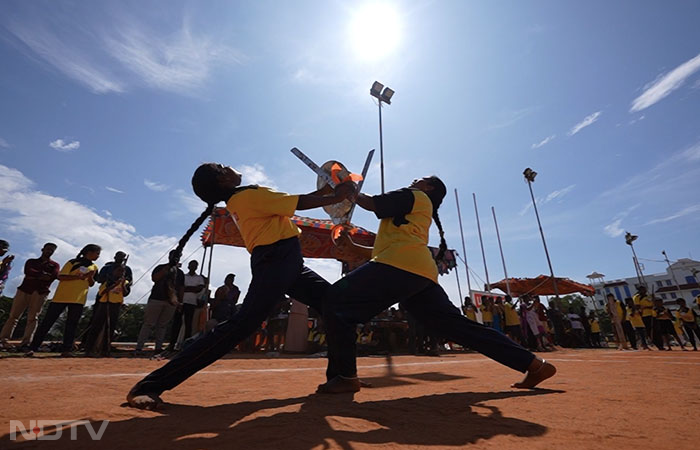
In Tamil, the word "Adimurai" combines the words "adi" meaning "to hit or strike" and "murai" meaning "method or procedure." Mentioned in 400 BCE Tamil Sangam literature, Adimurai, practiced with armed Tamil martial arts nowadays, targets important Varma points, or pressure points, in the body and focuses mostly on self-defence.
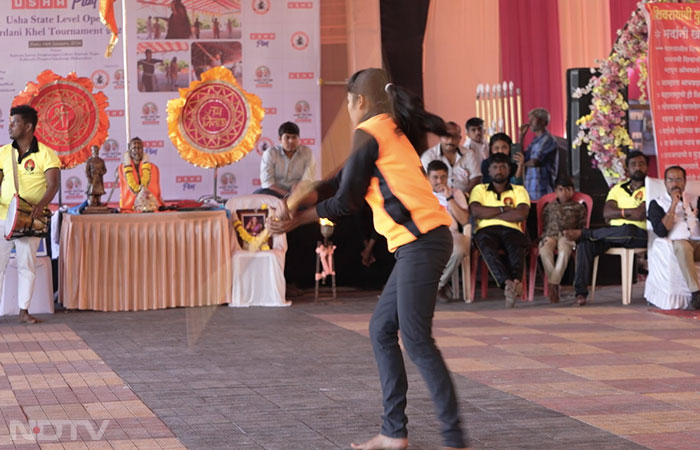
"Mardani Khel" is a weapon-based Indian martial art, known especially for its use of the traditional Indian arms, "Patta" and "Vita", a sword and corded lance or spear. It was developed by Maratha warriors who were skilled in using special weapons and light armour specially made for their build and the hilly terrain of the relatively short builds.
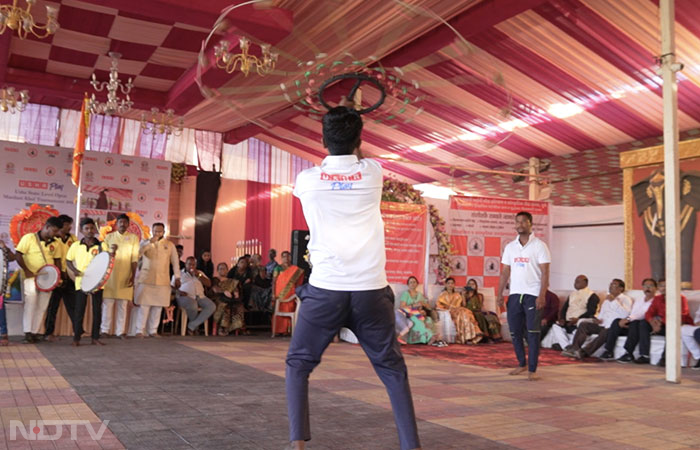
And now, in contemporary times, the women of the USHA Silai School are playing a crucial role in promoting martial art, by participating in the organisation of the USHA State Level Open Mardani Khel Tournament. The tournament is about celebrating the spirit of their communities, fostering unity, and inspiring the younger generation to stay connected with their roots.
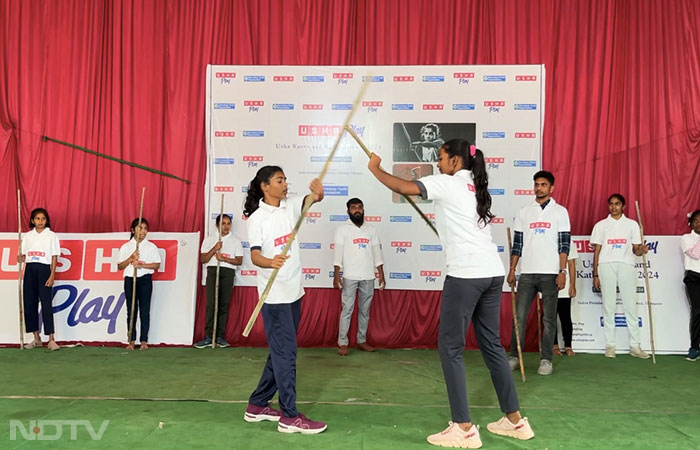
For the residents of Adilabad in Telangana, Usha rekindles the local love for "Karra Samu" and "Kathi Samu", an old-aged sword-fighting martial art that strengthens physical and mental prowess. As Usha's initiative revives these long-forgotten martial art forms, showcasing the rich heritage and talent of the region, it truly becomes a moment of celebration.
Adopt a Silai School
About the Initiative
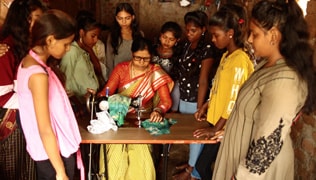
Kushalta Ke Kadam, an initiative by USHA Silai School and NDTV has entered its eighth season. The aim is to empower more women across rural India by teaching them sewing skills and helping them open new doors of opportunities for themselves. The initiative encourages rural women to become financially independent and entrepreneurs by taking up sewing and training others in their respective communities.
Since 2011, the USHA Silai School initiative has trained more than 12 lakh rural women through over 33,000 Silai schools, spanning over 20,751 villages across India.
The women earn Rs. 4,000 – 5,000 per month on an average, with the highest recorded monthly earning being Rs. 84,000 in a month. This earning works as a catalyst towards building their self-confidence, reducing gender inequities, and raising their stature within their families and in society at large.
Latest Stories
- Team NDTV | Monday February 16, 2026
Odisha's Suchismita Sahu, Rajasthan's Preeti Prajapat, Manipur's Akhirun—Usha Silai School's Kushalta Ke Kadam celebrates these awardees, from homemakers to master trainers earning accolades
- Team NDTV | Thursday February 12, 2026
From Ladakh peaks to Assam fringes, Usha Silai School trains tribal women in Turtuk, Kargil & Dakhinkuchi—crafting livelihoods with armed forces, NHPC & NGOs. Stitching national resilience
- Team NDTV | Thursday January 29, 2026
From West Bengal's transgender tailors to Telangana's tribal seamstresses and Meghalaya's embroidery revivalists, Usha Silai School's Kushalta Ke Kadam partners with NIRDPR and state governments
- Team NDTV | Tuesday February 03, 2026
In Odisha's mining heartlands, Mahanadi Coalfields Limited teams with Usha Silai School's Kushalta Ke Kadam and Gram Utthan, empowering tribal women turning them into entrepreneurs
- Written by Team NDTV | Friday January 02, 2026
Usha Silai Schools give second chances to women like Srinagar's Marifat, who rebuilt after widowhood; Madhya Pradesh's Jyoti, escaping abuse to run her own center; and Rajasthan's Vimla, rising from child marriage to tailor and teacher. Through nine-day training, they gain sewing skills, confidence, and income proving one stitch mends lives and inspires communities.
- Team NDTV | Friday December 26, 2025
A new wave of corporate-community partnerships is equipping rural women with skills, income and confidence

